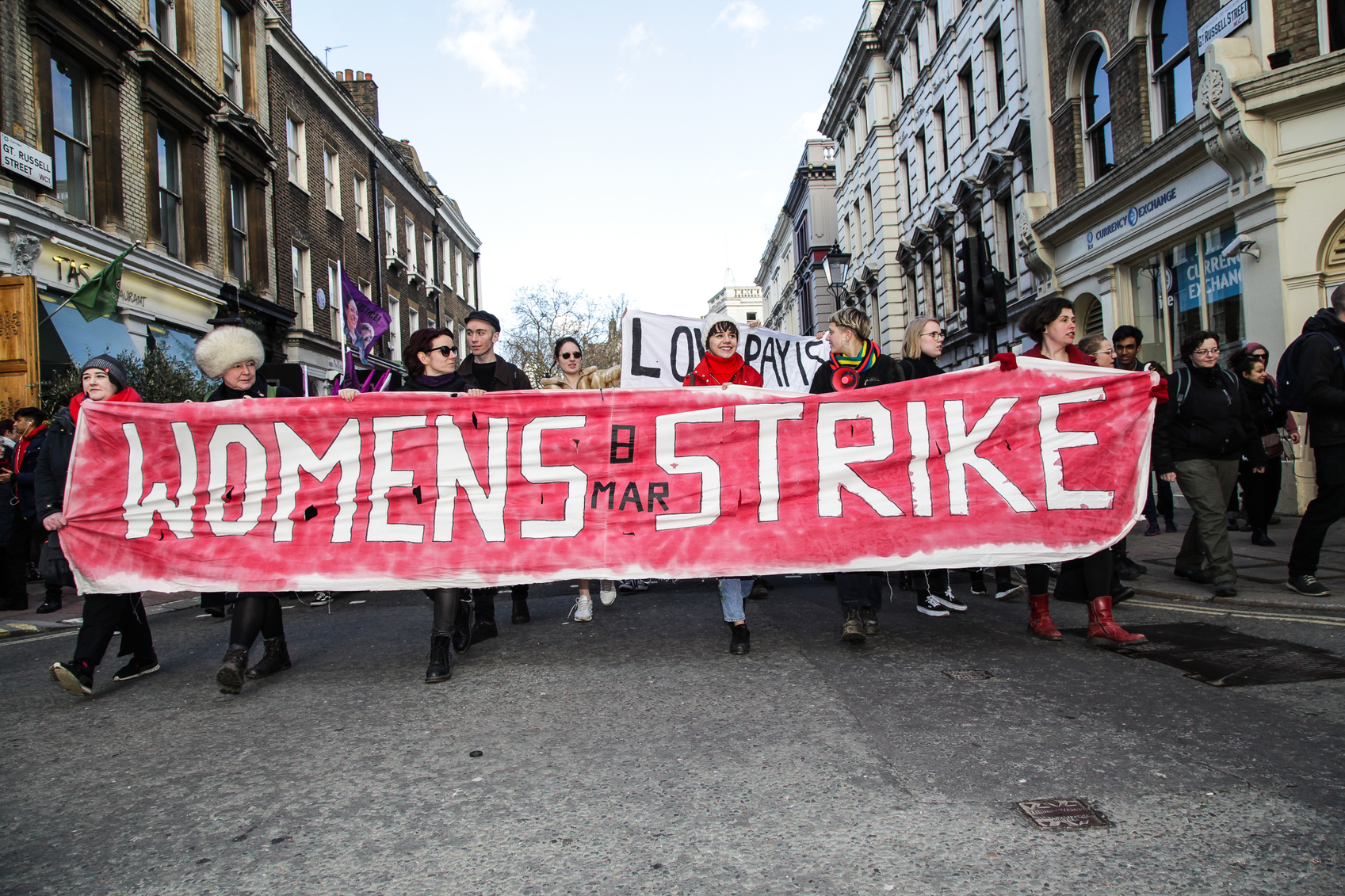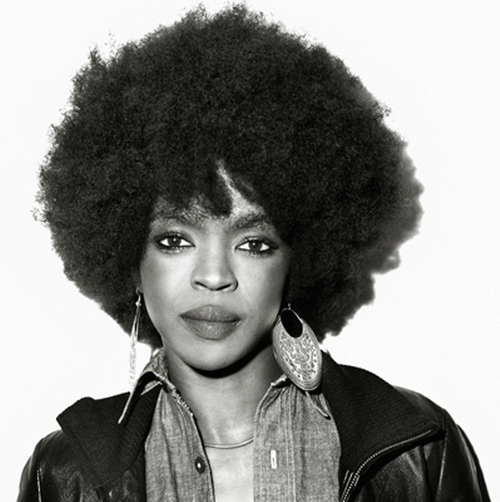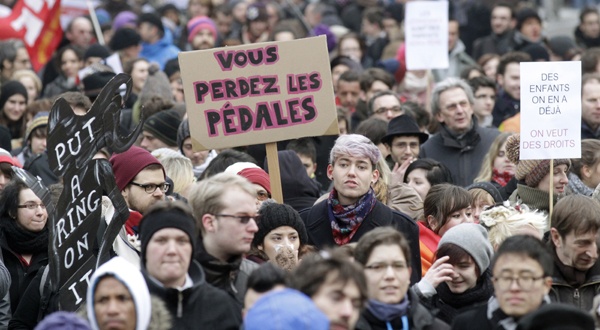We republish here the first communique from the Womens Strike
The International Women’s Strike in the UK began with women coming together to explore our visions of the red feminist horizon – what it could look like and how we could get there. The Women’s Strike is not a one-day event set to coincide with International Women’s Day each year – it’s not an activist campaign or a women’s project. In the UK and across the world we are witnessing an emerging international women’s movement that is experimenting with and struggling for a feminist future. We are not the first generation, nor will we be the last, to know in our gut that women’s liberation must be central to all social movements. We are not asking for our fair share under capitalism, we are seeking to destroy altogether a system that is designed to divide and oppress us. We already know women’s liberation to be at the heart of the struggle. To be clear: there will be no revolution until women’s lives and our labour are central to every political question.
In moving towards a red feminist horizon we continue the work of our feminist mothers and grandmothers in destabilizing ideas of womanhood. We refuse to be divided into good and bad women. We are not interested in reproducing a version of feminism that only makes some women visible, namely those who are white, middle class, cisgender and heterosexual. Nor is there anything stable, inherent or natural about being a woman. As Chandra Mohanty so forcefully argued 35 years ago, the relationship between “Woman” – a cultural and ideological construction and “women” who are real material subjects of our collective histories is one of the central questions that feminism seeks to act upon. We have to confront the reactionary and patriarchal ideas of what it means to be a woman today. Like that we are ‘naturally’ caring, that we all want to be mothers, that most of the time we are asking for it and the rest of the time we are in need of protection. Simultaneously, this confrontation must revalue care work and emotional labour, to support people who have children and combat the structural and systemic forms of violence and exploitation that harm so many women.
Reducing what it means to be a woman to a set of biological characteristics and reproductive capacities and claiming that women’s oppression and exploitation is the direct result of having a certain genital configuration recognised at birth is a specific form of reactionary and misogynist politics that we have no interest in. From decades of black feminist thought we have learnt that universalist claims of what it means to be a woman serve the interests of some women at the expense of others. Such claims actively work against the possibility of meaningful connections and solidarity being forged between women who experience womanhood in different ways.
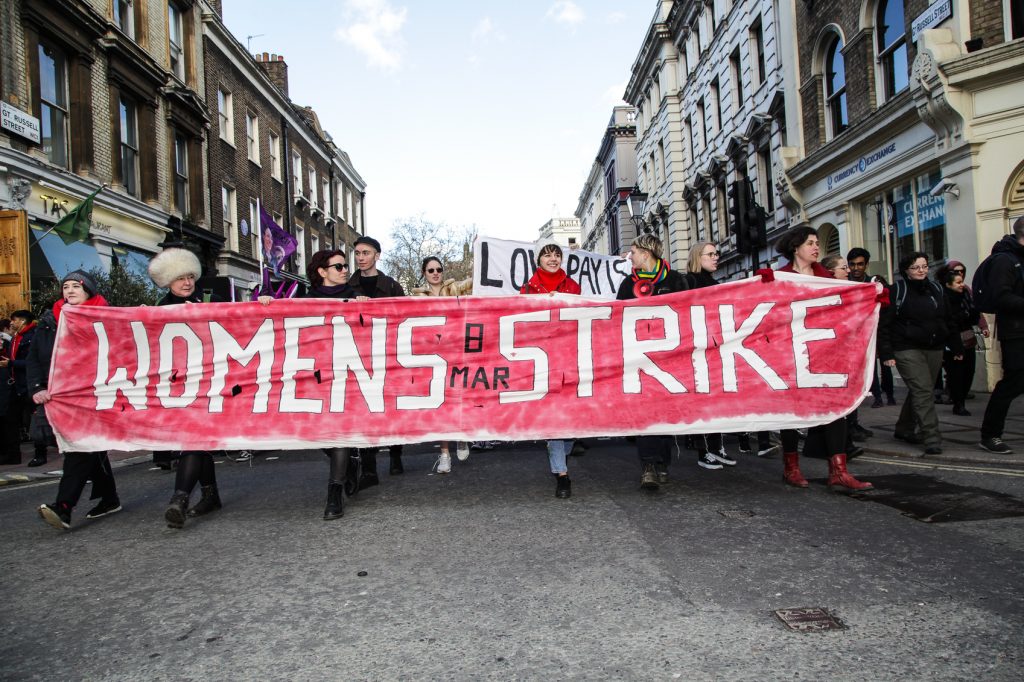
The red feminist horizon demands that we have full and final say on the meaning of our bodies, what they do, how we labour and what is done to our bodies. At the heart of that fight for bodily autonomy is reproductive justice: the right to reproduce when and how we want. For women to be free, we require full and free access to pregnancy termination, contraception and social services for children, parents and carers. But we also need full and free access to sperm freezing before trans women undergo hormone replacement therapy which results in infertility. We call for autonomy over our biological reproductive processes, whether they constitute a tendency to reproduce or, a tendency not to.
We are no longer interested in the faux-debates of whether sex work is ‘real’ work, whether the millions of hours we spend caring and cleaning is ‘real’ work, if the Women’s Strike is a ‘real’ strike or if trans women are ‘real’ women. Attempts to undermine the strength of our movement and thump the table about ‘authenticity’ say far more about those that seek to reduce women to our biological functions and confine us into victimhood, than it does about the vibrant and militant movement we are building. By looking to the wealth of knowledge produced by black feminism, transfeminism and sex worker rights movements we know who our sisters are. We know that trans women and sex workers have a central role to the play in dismantling the capitalist patriarchal systems of power that oppress us all.
We began the Women’s Strike as we intend to proceed. On the morning of the 8th March 2018 we organised a defiant direct action at the Department of Health to demand urgent action on trans healthcare. In the afternoon, 1000 people assembled for over four hours in central London, arriving from university picket lines in their hundreds and walking out of their offices, homes and factories. A social reproduction collective of mainly men organised collective childcare and cooked food to feed the whole assembly. We stood in solidarity with our Kurdish sisters, making it clear that we will defend the revolution in Rojava because their liberation is bound up with ours. Later on, we picketed pro-life religious organisations, joined striking cleaners who occupied Topshop to highlight their disgusting treatment of workers.
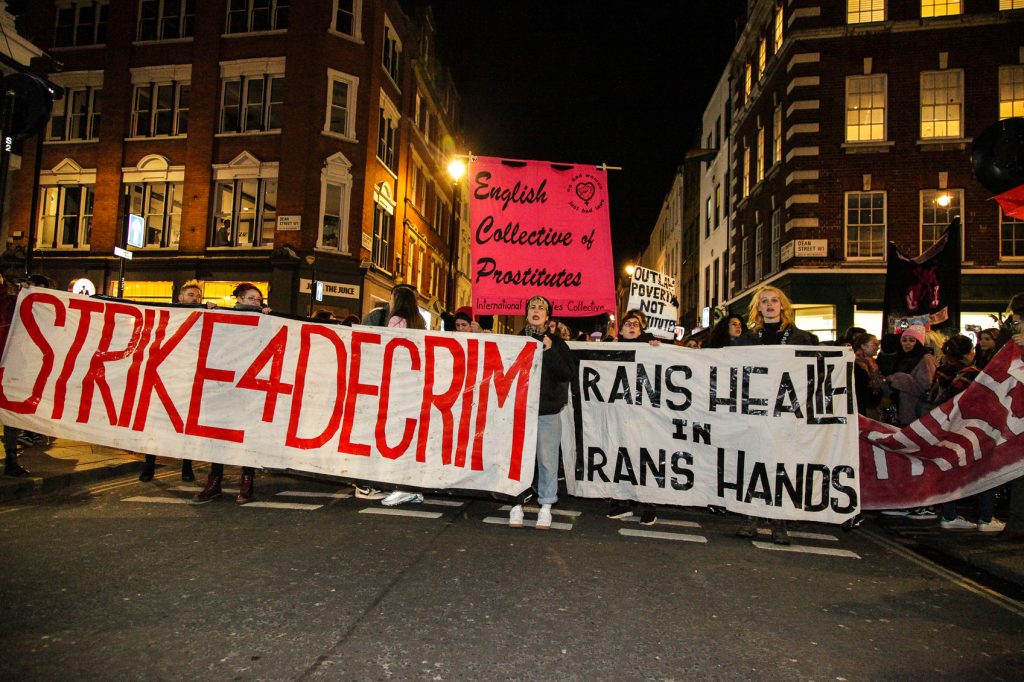
In the evening we took over the streets of Soho and marched behind sex workers who were on strike for the decriminalisation of all forms of sex work. The strike4decrim rally began with a minute of noise to remember the late Laura Lee, a fierce fighter for sex workers rights in Ireland. We heard from migrant sex workers who were arrested and humiliated during ‘anti-trafficking’ raids that did nothing for women in the sex industry and everything for property developers. We listened to strippers who are organising in their workplaces against being made to pay to get work and are denied basic employment rights. Our evening ended with hundreds of comrades, including sex workers and trans activists, joining the Picturehouse workers who have been striking and protesting for over a year to demand the living wage and decent working conditions. In bringing together service workers, sex workers, Kurdish women, single mothers, students, university workers, domestic workers, cleaners, artists and refugees we demonstrated our collective power. we exceed the narrow categories of womanhood forced upon us and make good on our promise to make feminism a threat again.

